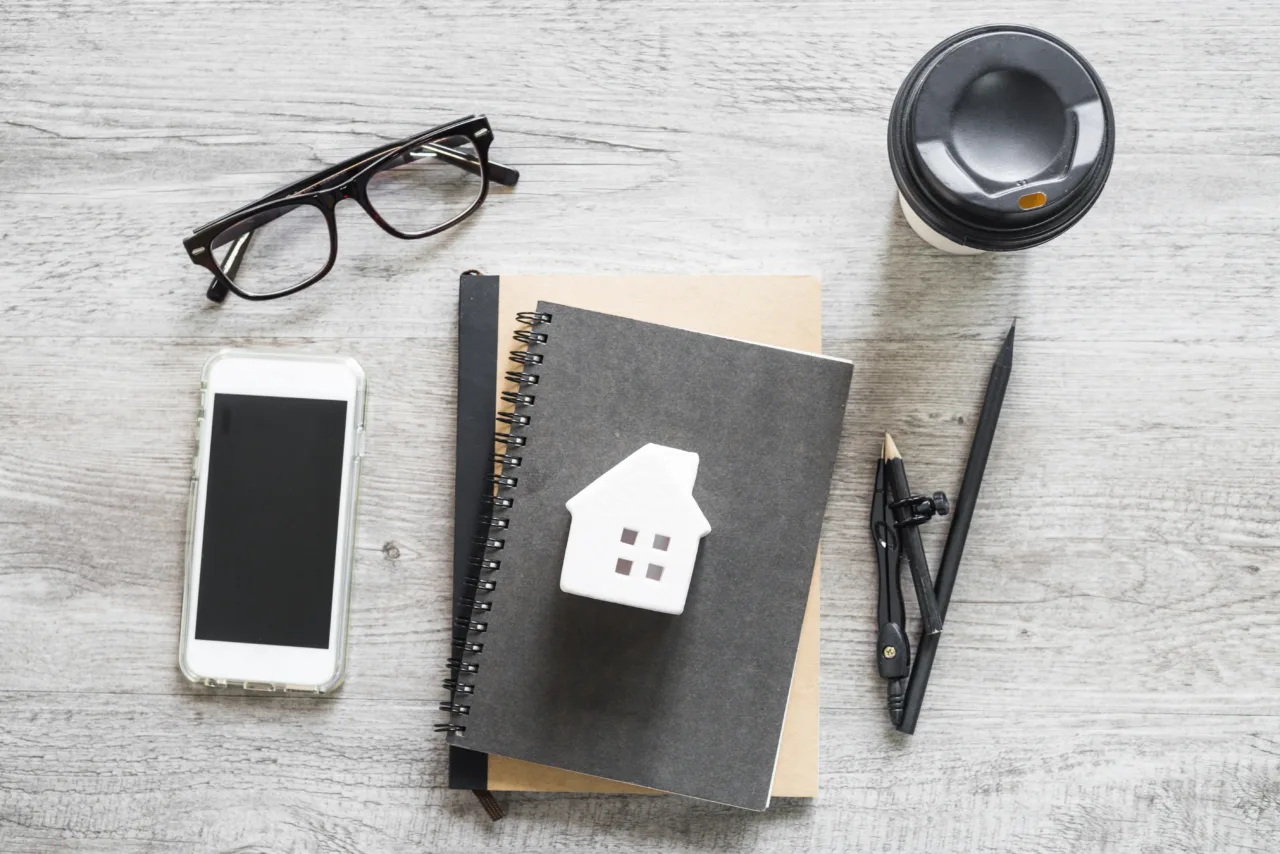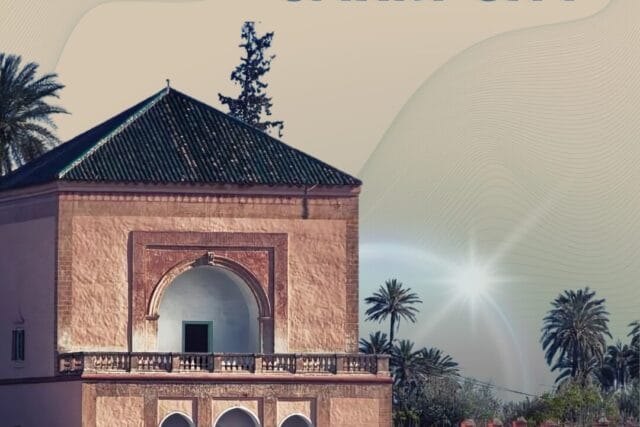
Escrow Account for Property Purchases in Morocco: 2025 Guide
Buying real estate in Morocco is an exciting step, whether you’re purchasing a riad in Marrakech, a villa by the coast, or an investment property in Casablanca. Yet one of the most common concerns among both local and foreign buyers is how to securely transfer funds during a property transaction. This is where the concept of an escrow account for property purchases in Morocco comes in.
In 2025, as the Moroccan property market attracts more international attention, escrow services are gaining ground as a trusted mechanism to safeguard transactions. By understanding how to set up an escrow account properly, buyers and sellers alike can minimize risk, comply with Moroccan law, and ensure a smooth transfer of ownership.
This guide breaks down what an escrow account is, why it matters in Morocco, the step-by-step process to set one up, and key pitfalls to avoid. By the end, you’ll know exactly how to use an escrow account for property purchases in Morocco with confidence.
What is an Escrow Account in Moroccan Real Estate?
An escrow account for property purchases in Morocco is a secure, third-party bank account used to hold funds until specific conditions of the transaction are met. Typically, this means the money is deposited by the buyer but cannot be released to the seller until all contractual and legal requirements are fulfilled.
Unlike informal transfers or direct payments, an escrow account creates a neutral financial buffer that protects both parties:
-
The buyer ensures that funds will only be released once the property title is clean and the transfer is legally completed.
-
The seller gains confidence that the buyer has committed the funds and won’t back out at the last minute.
In Morocco, escrow services are often managed in collaboration with banks, notaries, and occasionally specialized escrow providers. While the system is still developing compared to countries like France or the U.S., its role is becoming increasingly important in safeguarding international transactions.
When used correctly, an escrow account for property purchases in Morocco is not just a technicality, it’s a key step in building trust and avoiding costly disputes.
Why Use an Escrow Account in Morocco?
The Moroccan real estate landscape is unique, blending modern developments with traditional property systems. This makes transactions both exciting and occasionally complex. Here are the main reasons why setting up an escrow account is vital in 2025:
-
Protection Against Fraud
Unfortunately, cases of fraudulent property sales or double-selling still occur. An escrow account for property purchases in Morocco ensures money isn’t released until the property’s legal status is fully verified. -
Compliance with Moroccan Law
Escrow systems are aligned with Morocco’s broader efforts to modernize real estate transactions and increase transparency. Buyers who use escrow accounts are more likely to remain compliant with evolving regulations. -
International Investor Confidence
Foreign investors often worry about transferring large sums overseas. Escrow accounts reassure them that their capital is held securely until conditions are met. -
Smooth Closing Process
Escrow allows all parties, buyers, sellers, notaries, and banks, to coordinate more effectively, reducing misunderstandings and delays.
In short, an escrow account for property purchases in Morocco is no longer a luxury option. It is rapidly becoming a best practice for secure, transparent, and efficient transactions.
Step-by-Step: How to Set Up an Escrow Account in Morocco
Setting up an escrow account for property purchases in Morocco may sound daunting, but in practice, it can be broken down into clear steps. Here’s how the process typically works:
1. Agree to Escrow Terms in the Preliminary Contract
Before any money moves, the buyer and seller must agree, usually with the guidance of a notary, that funds will be deposited into escrow. The preliminary contract specifies:
-
Which bank will manage the escrow account
-
The exact release conditions (e.g., completion of due diligence, clearance of liens, property registration)
-
Deadlines for each step
2. Open the Escrow Account with a Moroccan Bank
Not all Moroccan banks provide dedicated escrow services, but leading institutions in Casablanca and Marrakech often do. The buyer deposits the agreed-upon funds into the account under the notary’s oversight.
3. Verification and Documentation
The notary ensures all necessary paperwork is complete: title deeds, land registry extracts, tax certificates, and seller identification. These documents serve as conditions for the eventual release of funds.
4. Fulfillment of Contractual Obligations
Once all requirements are met, such as registration at the Conservation Foncière (Land Registry), the notary notifies the bank to release the money.
5. Transfer of Funds to the Seller
After final verification, the bank releases the funds to the seller, and the buyer officially becomes the legal owner.
Each of these steps ensures that an escrow account for property purchases in Morocco works as a safeguard against risk, providing transparency and peace of mind.
Common Pitfalls and How to Avoid Them
While escrow accounts are designed to protect buyers and sellers, they are only effective when handled correctly. Here are some common pitfalls when setting up an escrow account for property purchases in Morocco, and how to avoid them:
-
Choosing the wrong bank or provider: Not every bank in Morocco is experienced with escrow services. Work with institutions recommended by your notary or lawyer.
-
Vague contract terms: If the release conditions aren’t specific, disputes may arise. Ensure the preliminary contract is detailed and leaves no room for ambiguity.
-
Ignoring notary oversight: A licensed Moroccan notary should always be involved. They serve as both legal gatekeepers and escrow supervisors.
-
Currency exchange issues: Foreign buyers need to ensure funds are transferred in compliance with Morocco’s foreign exchange regulations.
By addressing these risks upfront, you can ensure your escrow account for property purchases in Morocco functions smoothly, protecting everyone involved.
Costs and Fees Associated with Escrow in Morocco
Setting up an escrow account for property purchases in Morocco involves certain costs that both buyers and sellers should understand before moving forward. These fees are usually modest compared to the overall property price but are essential for maintaining the security of the transaction.
- Bank Fees: Moroccan banks may charge administrative fees for holding and managing funds in escrow.
- Notary Fees: The notary plays a central role in supervising the escrow account. Their fees are calculated based on the transaction value and include legal verification work.
- Currency Conversion Fees: For international buyers transferring funds from abroad, exchange rate costs and bank commissions may apply.
- Escrow Service Charges: In rare cases where specialized escrow providers are used, additional service fees might be included.
Overall, these expenses are a small price to pay for the peace of mind that comes with securing an escrow account for property purchases in Morocco.
Escrow vs. Traditional Payment Methods
When it comes to property purchases in Morocco, buyers and sellers have historically relied on traditional payment methods such as direct transfers or notary-held deposits. While these approaches remain common, escrow accounts offer a more secure and structured alternative that significantly enhances trust during the transaction process.
Traditional payment methods often involve transferring funds directly to the seller or depositing them with the notary until the sale is finalized. This approach is straightforward but leaves room for disputes. For example, buyers may worry about delays in property title registration, while sellers may fear last-minute withdrawal of funds. In some cases, disagreements arise over whether contractual obligations have been fully respected before the release of payment.
On the other hand, escrow accounts are specifically designed to mitigate these risks. In an escrow arrangement, a neutral third party—usually a licensed bank—holds the buyer’s funds until all the agreed conditions are met. This ensures that the seller only receives payment once the property transfer is legally secure and all documentation is complete. For buyers, this eliminates the fear of paying prematurely. For sellers, it guarantees that the funds are set aside and cannot be misused.
The main advantage of escrow is the added transparency and balance it brings. Instead of one party bearing more risk, both sides operate under the same level of protection. While traditional methods may still work in smaller or highly trusted deals, escrow provides peace of mind for higher-value or cross-border transactions where additional safeguards are critical.
In short, traditional methods may offer simplicity, but escrow accounts deliver structured security, protecting both buyer and seller in Morocco’s evolving property market.
Case Studies: Escrow in Action
1. International Buyer in Marrakech
Consider a French buyer purchasing a villa in Marrakech. They are unfamiliar with Moroccan land registry procedures and fear transferring €500,000 directly to the seller. By using an escrow account for property purchases in Morocco, the funds are held safely until the notary confirms all documents are clear. The buyer gains peace of mind, and the seller has proof of financial commitment.
2. Local Buyer in Casablanca
A Moroccan family purchasing an apartment in Casablanca also benefits from escrow. Although they are experienced in local property markets, they prefer the transparency escrow brings. The seller appreciates that the funds are guaranteed, while the family avoids risks linked to direct payments.
Both examples demonstrate how an escrow account for property purchases in Morocco builds trust and removes uncertainties from high-value transactions.
Future Outlook: Escrow in Moroccan Real Estate
As Morocco’s property market becomes increasingly attractive to global investors, the demand for secure, transparent financial mechanisms will only rise. In 2025 and beyond, the use of escrow is expected to expand significantly, supported by government modernization efforts and greater banking sector participation.
Notaries are also playing a growing role in promoting escrow services as part of their duty to safeguard clients. For buyers and sellers, adopting an escrow account for property purchases in Morocco is not just about following a trend, it’s about future-proofing property investments in a market that is rapidly evolving.
Frequently Asked Questions about Escrow Accounts for Property Purchases in Morocco
1. What is an escrow account for property purchases in Morocco?
An escrow account for property purchases in Morocco is a special bank account managed by a neutral third party, usually a notary, where the buyer deposits the funds for a real estate transaction. The money stays in this account until all legal and contractual conditions are met. Once the notary verifies the transfer of ownership and ensures compliance with Moroccan law, the funds are released to the seller. This system provides security for both parties and reduces the risk of fraud or disputes.
2. Why should I use an escrow account instead of paying directly?
Paying directly to the seller may seem faster, but it carries significant risks. Without escrow, buyers face the danger of transferring money before the property is legally secured. Sellers, on the other hand, may worry that the buyer lacks the funds to complete the deal. An escrow account for property purchases in Morocco eliminates these concerns by ensuring that money is only released once all conditions are satisfied. It builds trust and offers legal protection for both sides.
3. Who manages the escrow account in Morocco?
In Morocco, escrow accounts are typically managed by licensed notaries, who are legally responsible for overseeing property transactions. The notary ensures that the escrow process complies with Moroccan real estate laws and that all required documents, such as the property title, tax clearances, and ownership verification, are in place before releasing funds. In some cases, banks may also provide escrow services, but they still work closely with notaries to guarantee legal compliance.
4. How do I set up an escrow account for property purchases in Morocco?
The process starts with choosing a notary who will represent the transaction. After the purchase agreement is signed, the notary opens an escrow account for property purchases in Morocco on behalf of the buyer. The buyer transfers the agreed funds into this account. Once the property is legally transferred and registered under the buyer’s name, the notary releases the funds to the seller. Buyers should always confirm that the escrow account is opened in a recognized Moroccan bank and under official supervision.
5. What fees are involved in setting up an escrow account?
The main costs include notary fees, bank administration charges, and, for international buyers, currency conversion or transfer fees. Notary fees in Morocco are regulated and calculated as a percentage of the transaction value, often ranging from 1% to 2%. Bank fees are usually modest, while exchange rates depend on the buyer’s country of origin. Despite these expenses, the benefits of using an escrow account for property purchases in Morocco far outweigh the costs, considering the protection it provides for high-value transactions.
6. Can foreign investors use escrow accounts in Morocco?
Yes, foreign investors are strongly encouraged to use escrow accounts. In fact, Moroccan real estate law is designed to support international buyers, and escrow provides a secure framework for transferring large sums from abroad. Many Moroccan banks are equipped to handle international transactions and work closely with notaries to ensure compliance with currency exchange regulations. For global investors, using an escrow account for property purchases in Morocco is one of the best ways to safeguard their investment.
7. How long does the escrow process take?
The duration varies depending on the complexity of the transaction. On average, the process may take between 4 and 8 weeks. This timeframe includes verifying ownership, clearing debts or liens, completing tax requirements, and registering the property. While direct payments may seem quicker, they often lead to complications later if any issues arise with the title. An escrow account for property purchases in Morocco ensures a smoother and more transparent process, even if it takes slightly longer.
8. What happens if the transaction falls through?
If the sale does not proceed due to unmet conditions or legal issues, the funds in the escrow account are returned to the buyer. This is one of the key protections escrow offers, buyers do not lose money unless the property transfer is legally secured. Sellers also benefit, since having funds in escrow shows that the buyer is financially committed. In case of disputes, the notary’s legal responsibility ensures that the process follows Moroccan law.
9. Is escrow mandatory for all property transactions in Morocco?
Escrow is not legally mandatory in Morocco, but it is becoming increasingly common, especially in transactions involving foreign buyers or high-value properties. Local buyers may sometimes rely on direct transfers, but the trend is shifting as more investors recognize the importance of financial security. Using an escrow account for property purchases in Morocco is considered best practice and is highly recommended for anyone entering the Moroccan property market.
10. What is the future of escrow in Moroccan real estate?
With Morocco’s property market becoming more international and technology-driven, escrow services are expected to expand significantly. Digital escrow solutions may also become available, offering even more convenience while maintaining strict legal safeguards. As the Moroccan government continues to modernize property regulations, the use of an escrow account for property purchases in Morocco will likely become the standard for all serious investors.
In conclusion, escrow is not just a tool, it is a vital safeguard for both local and international property buyers. Whether you’re purchasing a luxury villa in Marrakech or an apartment in Casablanca, an escrow account ensures your money and your investment remain secure.
Conclusion
Securing your real estate investment requires more than choosing the right property; it requires ensuring that the financial side of the transaction is handled safely and transparently. By setting up an escrow account for property purchases in Morocco, both buyers and sellers gain the protection they need to move forward with confidence.
From preventing fraud to streamlining legal oversight, escrow is quickly becoming the gold standard for Moroccan property deals. Whether you are an international investor looking to safeguard capital or a local buyer ensuring a smooth process, escrow provides peace of mind at every step.
If you are considering a property purchase in Marrakech, Casablanca, or anywhere else in Morocco, consult with a trusted notary and bank to establish an escrow arrangement, you can also contact us if you want additional information. By doing so, you’ll secure not just your money, but also your future home or investment.



Leave a Reply